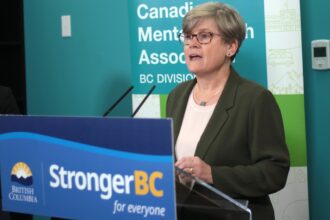The northern British Columbia city of Fort St. John is poised to become a significant hub for nursing education following a substantial $3.6 million investment announced yesterday. This critical funding injection will expand the University of Northern British Columbia’s nursing program at its Fort St. John campus, addressing the pressing healthcare staffing shortages that have challenged the region for years.
“This is a transformative moment for healthcare in northern communities,” said Dr. Margaret Wilson, UNBC’s Dean of Health Sciences. “By training nurses where they’re needed most, we’re creating sustainable solutions to chronic staffing challenges while offering local students the opportunity to pursue healthcare careers without leaving their communities.”
The expansion, slated to begin this September, will increase nursing student capacity by 32 additional seats over the next two years. The initiative represents a collaborative effort between the provincial government, UNBC, and Northern Health to address the unique healthcare delivery challenges faced in remote and rural settings.
Provincial Health Minister Caroline Bennett emphasized the strategic importance of the investment during yesterday’s announcement at the Fort St. John campus. “Healthcare accessibility isn’t just about building facilities—it’s about ensuring we have trained professionals to staff them. This funding creates a pipeline of qualified nurses who understand the distinct needs of northern communities.”
According to Northern Health statistics, nursing vacancy rates in northeastern BC have consistently hovered between 15-20% over the past five years, significantly higher than the provincial average of 8%. Local healthcare administrators have long identified this staffing gap as a primary factor limiting service delivery and contributing to burnout among existing staff.
Fort St. John Mayor Lilia Wright praised the announcement as “precisely the kind of investment our community has been advocating for,” noting that local students who train locally are substantially more likely to remain in the region after graduation. A 2023 workforce retention study found that healthcare professionals with personal connections to northern communities demonstrated 68% higher retention rates over five years compared to those recruited from urban centers.
The funding package includes provisions for specialized training in rural healthcare delivery, emergency medicine, and culturally appropriate care for Indigenous communities—all critical components for effective healthcare provision in the region. The program will also incorporate practical training rotations at healthcare facilities throughout northeastern BC, helping students develop familiarity with the regional healthcare network.
Northern Health CEO Robert Steele highlighted the economic benefits beyond immediate healthcare improvements. “This investment creates an educational ecosystem that attracts talent, generates economic activity, and strengthens our communities. Each nursing graduate who stays in our region represents not just improved healthcare delivery but a meaningful contribution to our community’s vitality.”
The funding announcement comes amid growing recognition of rural healthcare challenges across Canada, with several provinces implementing similar place-based education strategies to address critical workforce shortages. Healthcare policy analysts have increasingly emphasized the importance of training healthcare professionals in the communities where they will ultimately practice.
As northern communities continue navigating healthcare accessibility challenges, the question remains: Could this localized approach to nursing education serve as a model for addressing other persistent professional shortages in rural Canada, from physicians to mental health providers?

























